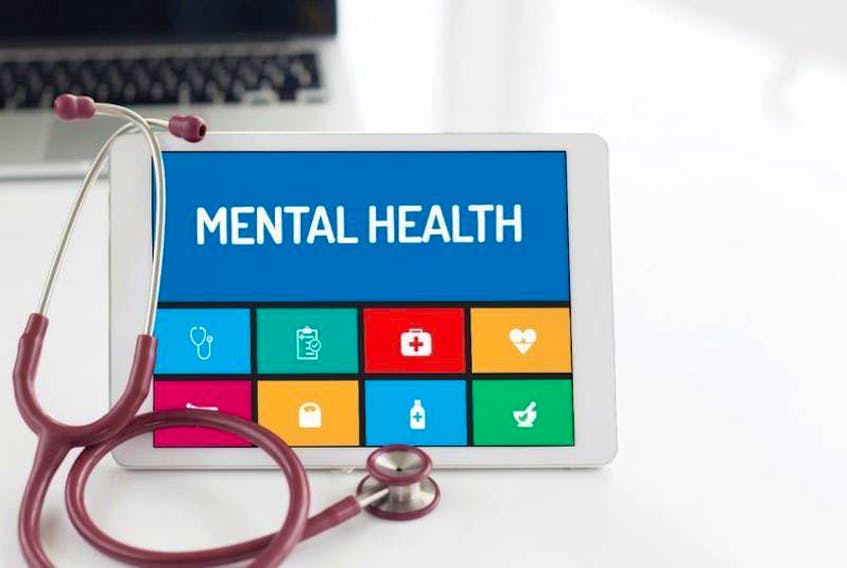SYDNEY, N.S. — Work is continuing to standardize the reporting of wait times for mental health services in the province, which have been too long, an official with the Nova Scotia Health Authority says.
Sam Hodder, director of mental health and addiction services with the NSHA, said the authority, the IWK and the Department of Health and Wellness are still working to integrate information on the waits for appointments in community-based mental health and addictions across the province. Hodder said that involves uniting data coming from nine prior sources.

“What we’re trying to do is a complete standardization of nine different systems that were in place and the work to audit the data, to track the data, to input the data into the system … it’s a large initiative,” Hodder said.
When the Cape Breton Post published a story on the delay in updating wait times in the spring, the provincial wait times website stated that the next update would take place in August 2018. The site now indicates an update is due in fall 2018.
The state of mental health services in Cape Breton has been described by many stakeholders as being in crisis. The wait time listed for adult community-based mental health services currently remains at 363 days in Cape Breton. That is intended to represent the maximum length of time 90 per cent of patients waited for an appointment. It is based on data from the period of July 1-Sept. 2017.
“We know that people were waiting too long and have been waiting too long and our commitment is to make change to improve that … to improve access, reduce wait times to high-quality care,” Hodder said.
When the new system goes online, the data will be from April 2018 onward and will be reported quarterly.
“The important thing for us is that this will be the first time in the province where we actually have standardized measures put in place to track our patients’ waits by triage level. Historically, each of the previous health authorities would have measured wait times … and reported on wait times very, very differently,” Hodder said.
The data will help in making improvements to the system overall, Hodder said.
The wait times information is important to people seeking mental health services, she said.
“It’s important for the people that we’re servicing, for the referral sources that are coming in to us what the expected time of wait is,” she said. “I can’t stress how important it is that the data is going to be reported based on triage level because we need to ensure people who need us that most who are sickest … that they are seen first and that they are prioritized in relation to their need.”
The three triage levels will be emergent, which is when someone is in crisis and will involve no wait whatsoever; urgent, which would have a standard wait time of seven days for an appointment; and non-urgent, which would have a standard wait time of 28 days as a target.
“They are the optimal, in terms of what we’re trying to measure against,” Hodder said.

The goal is to always meet the standard for emergent and urgent care and Hodder said they are streamlining processes so they can see how they can make the necessary improvements to meet the non-urgent target.
To that end, additional resources have gone into community mental health and addictions clinics in the form of personnel such as social workers, psychologists and new clinicians, as well as in urgent care or emergency crisis clinics. They are also working with SchoolsPlus and mental health clinicians in schools.
Other projects are also underway, Hodder added.
She said the new system should be online within the next five weeks or so.
Related: Nearly one year for Cape Breton patients to access mental health services
There hasn’t been any recent success in attracting new psychiatrists to practice in Cape Breton, where there are multiple vacancies. Recruitment is ongoing.
Hodder said the locum program has seen psychiatrists from other parts of the province, as well as from outside of Nova Scotia, come to Cape Breton to provide services.
“We’ve seen in the last number of weeks, last month, new-to-the-area psychiatrists who are coming and the incentive program that we have in place is helping to recruit,” she said.
There is also a “virtual care” option that makes use of either telehealth technology or another app to receive consultative services from psychiatrists working in other parts of the province.
According to the wait times website, if patients experience a change in symptoms while waiting, they should see their healthcare provider to get reassessed.
The wait times website advises that emergency mental health cases are seen immediately and encourages those in crisis to call the mental health crisis line at 1-888-429-8167, 911, or to go to their nearest emergency room.









